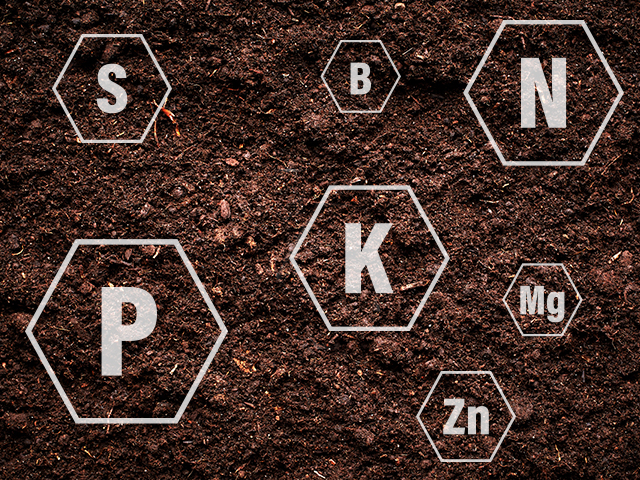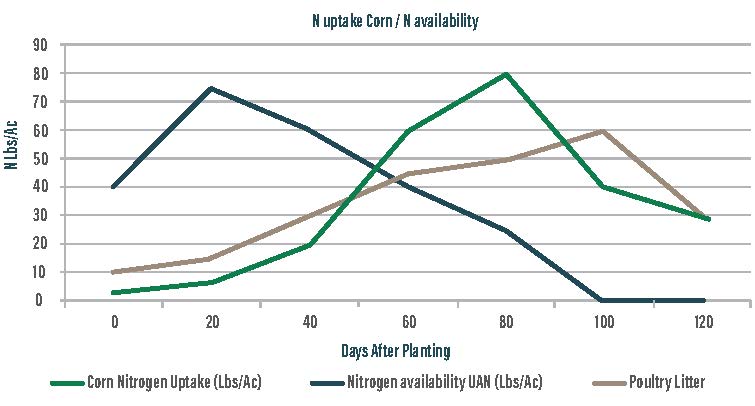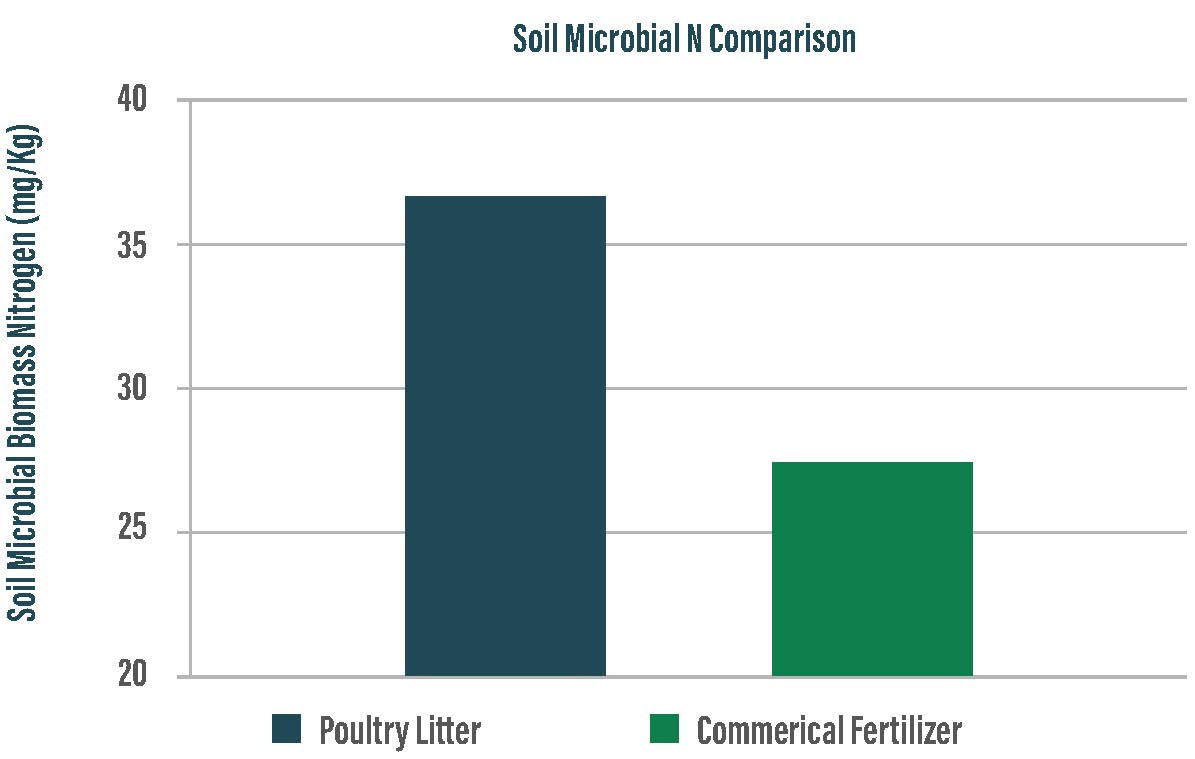Chicken Litter
Chicken litter has proven to be a valuable commodity. Since 2003, Farm Nutrients has been providing growers with high quality chicken manure as fertilizer. Our growers have seen the benefits chicken manure can provide on their acres, including: ground working easier, soil holding moisture longer during summer, and higher yields. While the most commonly known benefit of chicken manure is it’s excellent source of NPK, there are many other benefits that it provides for not only your soil, but also your crops.
Plant Health

One of the seldom talked about effects of chicken litter application to your fields is plant health benefits. As a grower, you probably know healthy soils result in healthier plants, which leads to higher yields. A Michigan State study has found that organic amendments, such as chicken litter, not only increase the amount of beneficial organisms in your soil, but also decreases the amount of harmful organisms. The use of organic amendments has been found to change the physical, chemical, and biological properties of soil, resulting in lower pathogen survival rates. (MSU, Manure Effects on Soil Organisms and Soil Quality) A 2005 study found that the ammonia volatilization has an effect of suppressing Pythium species which causes root rot. (Scheuerell, Sullivan, Mahafee, 2005) Wouldn’t it be great to know that you could potentially save money on your nematicide seed treatments just by applying chicken litter to your fields?
Improved Soil Health

Soil health is a new buzz word in agriculture. You have a healthy soil if your soils environment is living-full of bacteria & fungi, breathing-providing oxygen to aid the bacteria and fungi, and has a good water holding capacity-allowing water to move freely within the soil profile. How do you create this environment? You improve the organic matter percentage with the use of litter (one ton of litter adds 600-800 lbs of organic matter), cover crops, and by reducing tillage which destroys soil pores and limits oxygen and water from moving freely throughout the whole soil profile. A shovel full of earthworms will tell you that you have a healthy soil. You can also bury a pair of cotton underwear in your soil in the spring and see how they have deteriorated at the end of the year! Try it, the more holes the better. (Dean Houton, 2018)
Contains Micronutrients

In addition to the N-P-K macronutrients, many micronutrients that are required for optimal plant growth such as magnesium, manganese, boron, zinc, and sulfur are present in poultry litter. Litter also contains large amounts of organic matter, which improves soil structure and tilth. Micronutrients and tilth are additional benefits of poultry litter. Applying litter to fields will reduce or eliminate the need to apply micronutrients such as boron, zinc, and sulfur for row crops such as corn and soybeans. It also decreases the need for lime addition to meet magnesium needs or for soil pH adjustment.
Nutrient Availability

Nitrogen – Research from universities across the nation indicates nitrogen availability ranges are consistent industry wide. Nitrogen exists in both inorganic and organic forms. Inorganic nitrogen is subject to leaching and volatilization but only makes up 5-10% of the total N. Organic nitrogen decomposes over a 3-6 month period, becoming plant available, making it a suitable nitrogen source for crop production. University of Arkansas (FSA-2147) suggests 10% of the nitrogen is plant available at the time of application and 50-60% of the total N is plant available the first year. Iowa State (PMR 1003) suggests the same, 50-60% plant available the first year.
Phosphorus – Much like Nitrogen, Phosphorus is represented as both organic and inorganic forms, however phosphorus in not volatile like nitrogen. The plant can take up the inorganic portion of the phosphorus right away and utilize the organic form as it becomes available throughout the growing season. Assuming relatively normal soil tests, phosphorus in the litter can be credited with 80-100% availability to the plant the first year. (Kansas State MF-2562)
Potassium – Unlike nitrogen and phosphorus, all forms of potassium are readily available the first year, with estimates nearing 100%. Potassium can leach into the groundwater and should only be applied in quantities utilized by the current crop. (University of Georgia Extension bulletin 1245)
Increased Microbial Activity

Chicken litter is an excellent source of organic matter, which feeds important microorganisms that break down nutrients for plant uptake. Because of this, fields that have had chicken litter spread as fertilizer have seen higher microbial activity, ultimately improving soil health and making the nutrients more readily available for plants. With that increased microbial activity, you will also see an increase in the soil microbial nitrogen from dying microorganisms.



 Plant Health
Plant Health